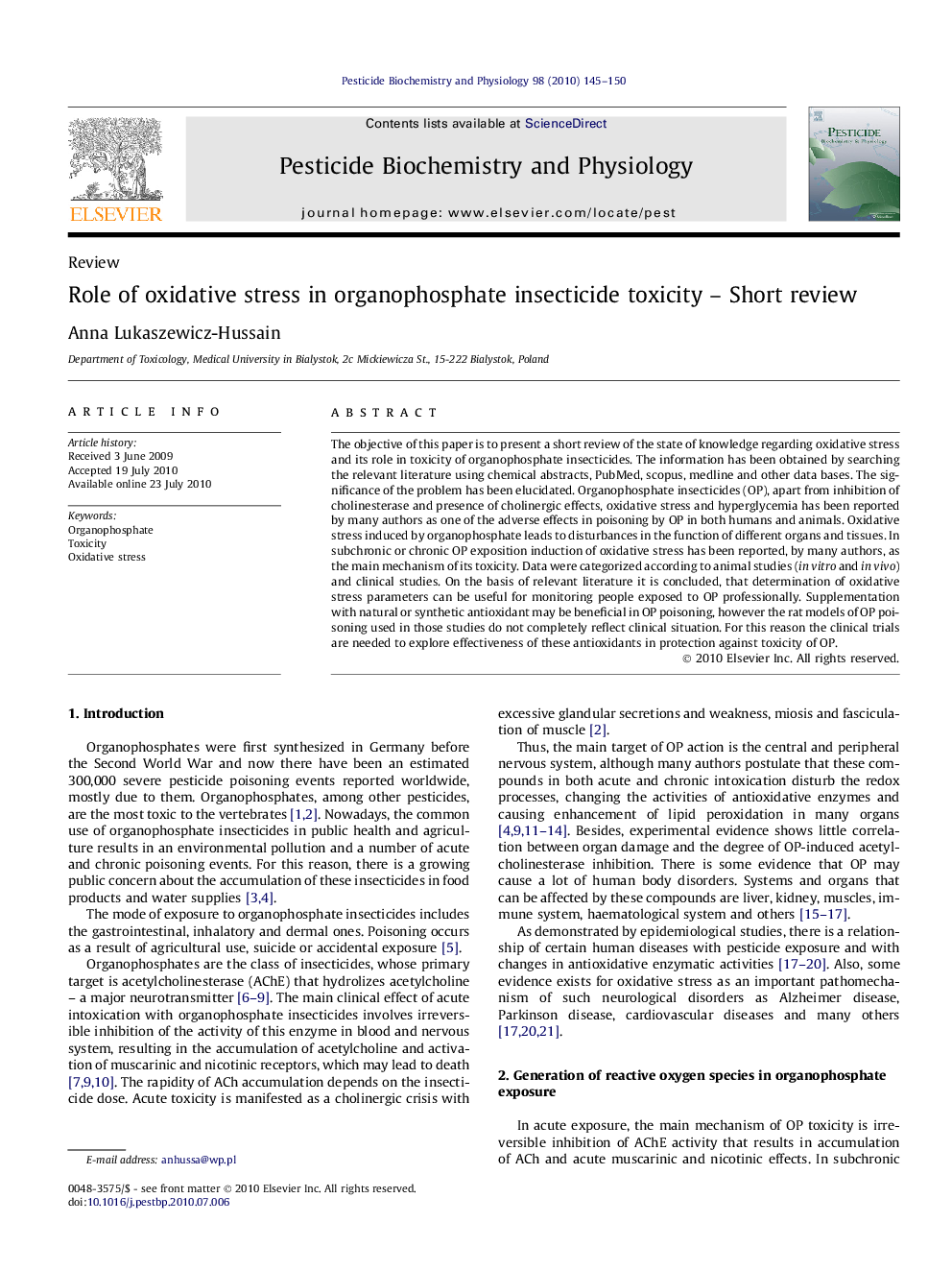| Article ID | Journal | Published Year | Pages | File Type |
|---|---|---|---|---|
| 2010047 | Pesticide Biochemistry and Physiology | 2010 | 6 Pages |
The objective of this paper is to present a short review of the state of knowledge regarding oxidative stress and its role in toxicity of organophosphate insecticides. The information has been obtained by searching the relevant literature using chemical abstracts, PubMed, scopus, medline and other data bases. The significance of the problem has been elucidated. Organophosphate insecticides (OP), apart from inhibition of cholinesterase and presence of cholinergic effects, oxidative stress and hyperglycemia has been reported by many authors as one of the adverse effects in poisoning by OP in both humans and animals. Oxidative stress induced by organophosphate leads to disturbances in the function of different organs and tissues. In subchronic or chronic OP exposition induction of oxidative stress has been reported, by many authors, as the main mechanism of its toxicity. Data were categorized according to animal studies (in vitro and in vivo) and clinical studies. On the basis of relevant literature it is concluded, that determination of oxidative stress parameters can be useful for monitoring people exposed to OP professionally. Supplementation with natural or synthetic antioxidant may be beneficial in OP poisoning, however the rat models of OP poisoning used in those studies do not completely reflect clinical situation. For this reason the clinical trials are needed to explore effectiveness of these antioxidants in protection against toxicity of OP.
